One hopes the new Lok Sabha will mark a break from a dismal tradition -- lack of interest and inputs in defence and security policies, argues Colonel Anil A Athale (retd).
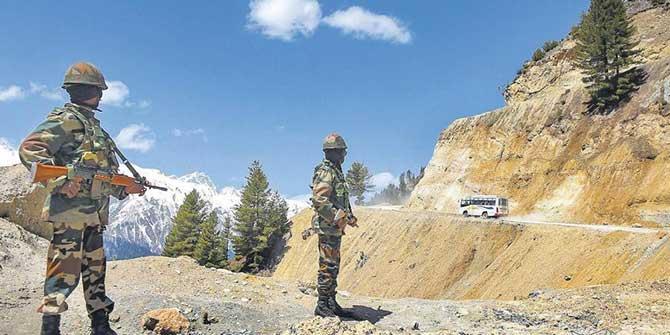
The Narendra D Modi government has not permitted a discussion in Parliament on the four year stand-off with China in Ladakh. Photograph: PTI Photo from the Rediff Archives
India has just elected a new Lok Sabha and a new government has taken office. One hopes the new Lok Sabha will mark a break from a dismal tradition -- lack of interest and inputs in defence and security policies.
In 1993, George Tanham, then vice president at the Rand Corporation, a prominent American think-tank, issued a pamphlet on India's lack of a strategic culture. He had discussed his draft with me. While I argued against his conclusions as a patriotic Indian, in my heart, I had to agree with his thesis.
India has been infamous for lacking a strategic culture. Throughout the 150 years of British domination on the subcontinent, the numbers of Englishmen hovered around the 0.15 million mark in a population of over 200 million.
The highest number was in 1947 when they numbered 0.8 million in a population of 400 million.
Despite this dismal history, Parliament has shied away from playing its legitimate role in defence related decision making.
I was at the defence ministry in 1990. Whenever grants of a ministry are being discussed in Parliament senior officials get to attend the session and sit in the officials's gallery.
I had never been to Parliament and was curious to see it from the inside. It was an evening debate and India's approach to nuclear weapons were being discussed.
To my horror, I found there were barely a handful of MPs present including the then minister of state for defence, Dr Raja Rammana.
I was aghast and checked with other colleagues at the ministry and they told me that debates and deliberations on defence do not interest most MPs and there is a mutual agreement to not raise the issue of a lack of quorum.
It has been a long time since but I believe that that apathetic attitude continues.
Who can forget the 2019 debate on the purchase of the Rafale fighter aircraft from France when the august members of the Opposition were throwing paper planes to mark their protests!

The governing party has been guilty of ramming through a transformative decision like the Agniveer scheme or theatre-isation of higher military commands without deliberations in parliamentary committees.
While one can understand that parties grand stand in the House, select committees working behind closed doors can conduct meaningful debates away from the public gaze.
The select committees also have the authority to call in experts to give testimony.
This major advantage of parliamentary democracy has been frittered away by our MPs in the past.
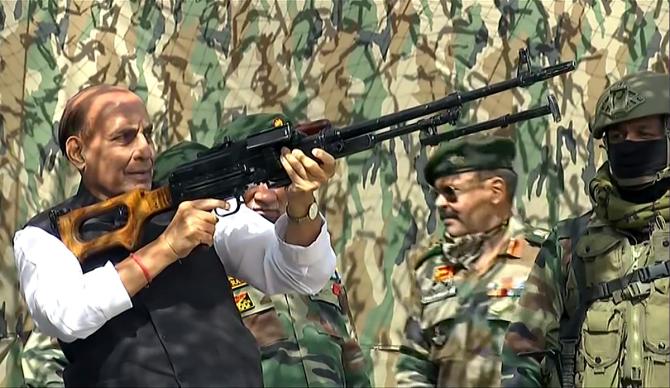
The 1962 military debacle against China was caused by 'ignorant public opinion, goaded by opposition forced Nehru into a conflict for which India was not prepared': These quotes in an otherwise biased account by Neville Maxwell (India's China War) are quite accurate.
Then prime minister Jawaharlal Nehru ought to have told Parliament and the country that China had not captured any Indian territory since the border between India and Tibet in the Ladakh area was ambiguous.
There were two versions, the more easterly Ardagh-Johnson Line and the less ambitious Macdonald-Macartney line. India did not exercise any admirative control over these areas. China did not 'conquer' any Indian territory but occupied a no man's land area on the border.
If debated rationally at that time, 1962 could have well been avoided. But who can forget the quip by Mr Mahavir Tyagi that just because no hair grows on his head (he was bald), is it useless? This was in reaction to Nehru's assertion that not a blade of grass grows in the Aksai Chin area claimed by China. Parliament failed to debate the issue rationally and the rest is history.
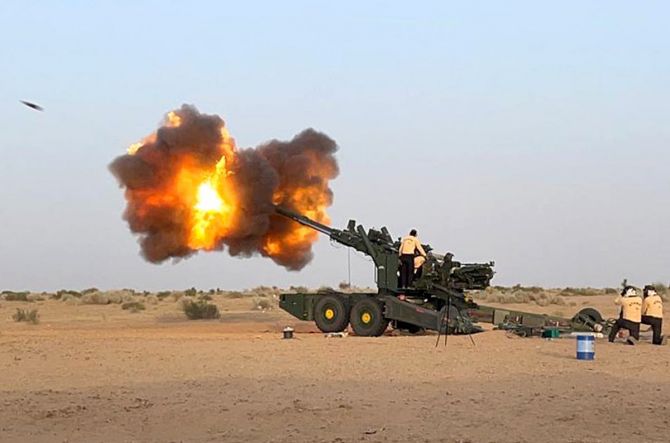
In most democracies, the issues of defence and security are treated as bipartisan issues since irrespective of the party in power, the nation's security is a necessary precondition for holding domestic power.
At times one feels that Indians have lapsed back to the 19th century when the British played one Indian against the other and ruled over us.
The various maharajas and nawabs of that era did not hesitate to collaborate with the foreign power in order to resolve domestic dispute/competition.
It needs to be remembered that in 1999 Atal Bihari Vajpayee won the elections on the back of successful Kargil defence operations.
In 2019, Narendra Modi won a resounding electoral victory on the strength of retaliatory air strikes in response to the Pulwama terror attack.
It is hoped that the government and Opposition have learnt their lessons and one can hope for genuine and fruitful debates and superior decision making on the issues of defence and national security.
Democracy ought to be a force multiplier in this area and not a deficit.
Colonel Anil A Athale (retd) is a military historian whose earlier columns can be read here.
Feature Presentation: Rajesh Alva/Rediff.com


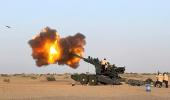
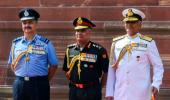




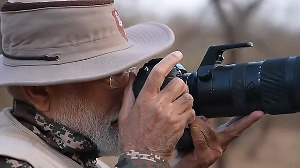
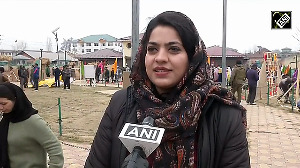
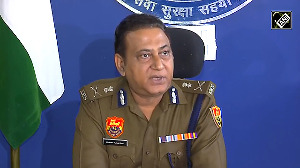
 © 2025
© 2025